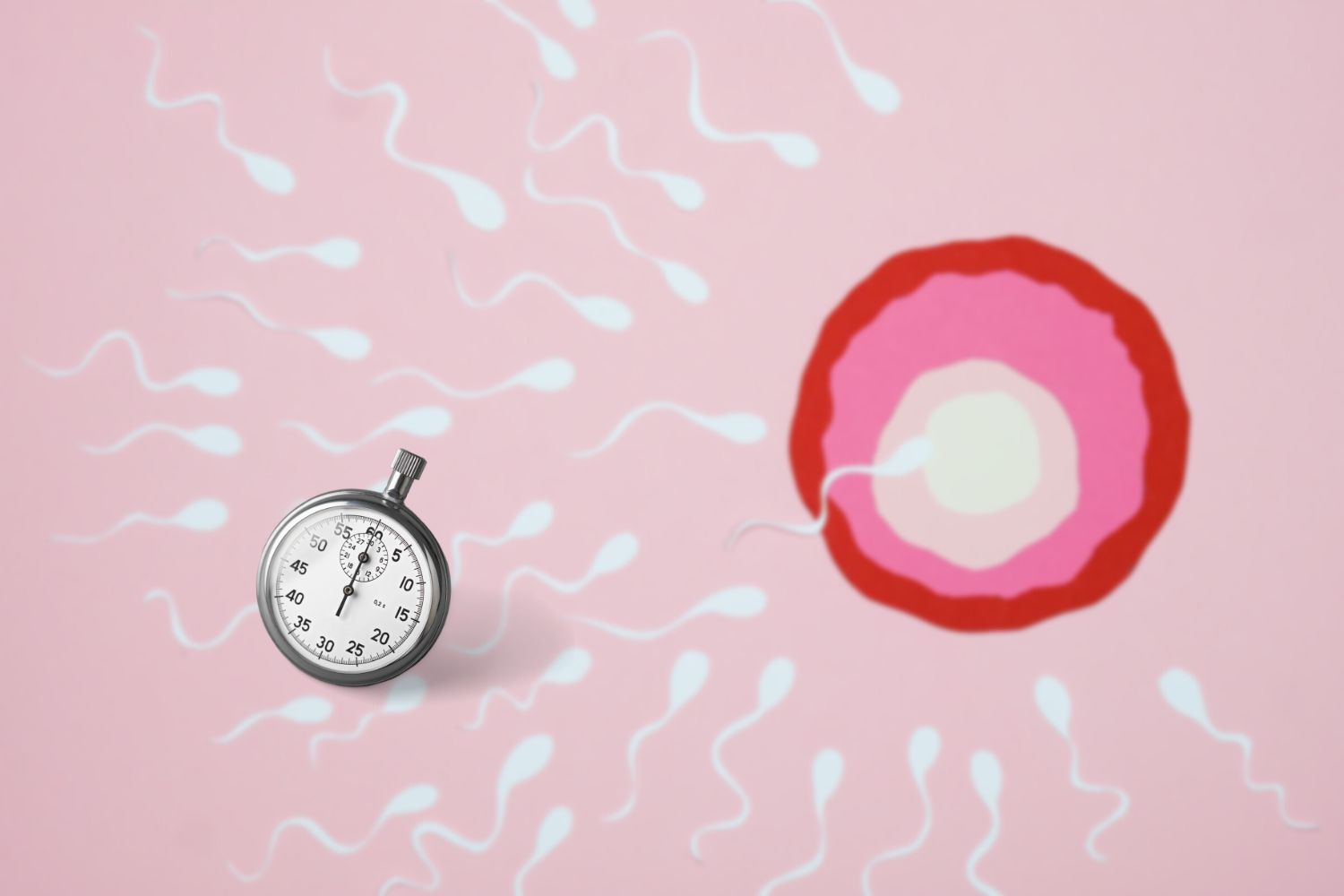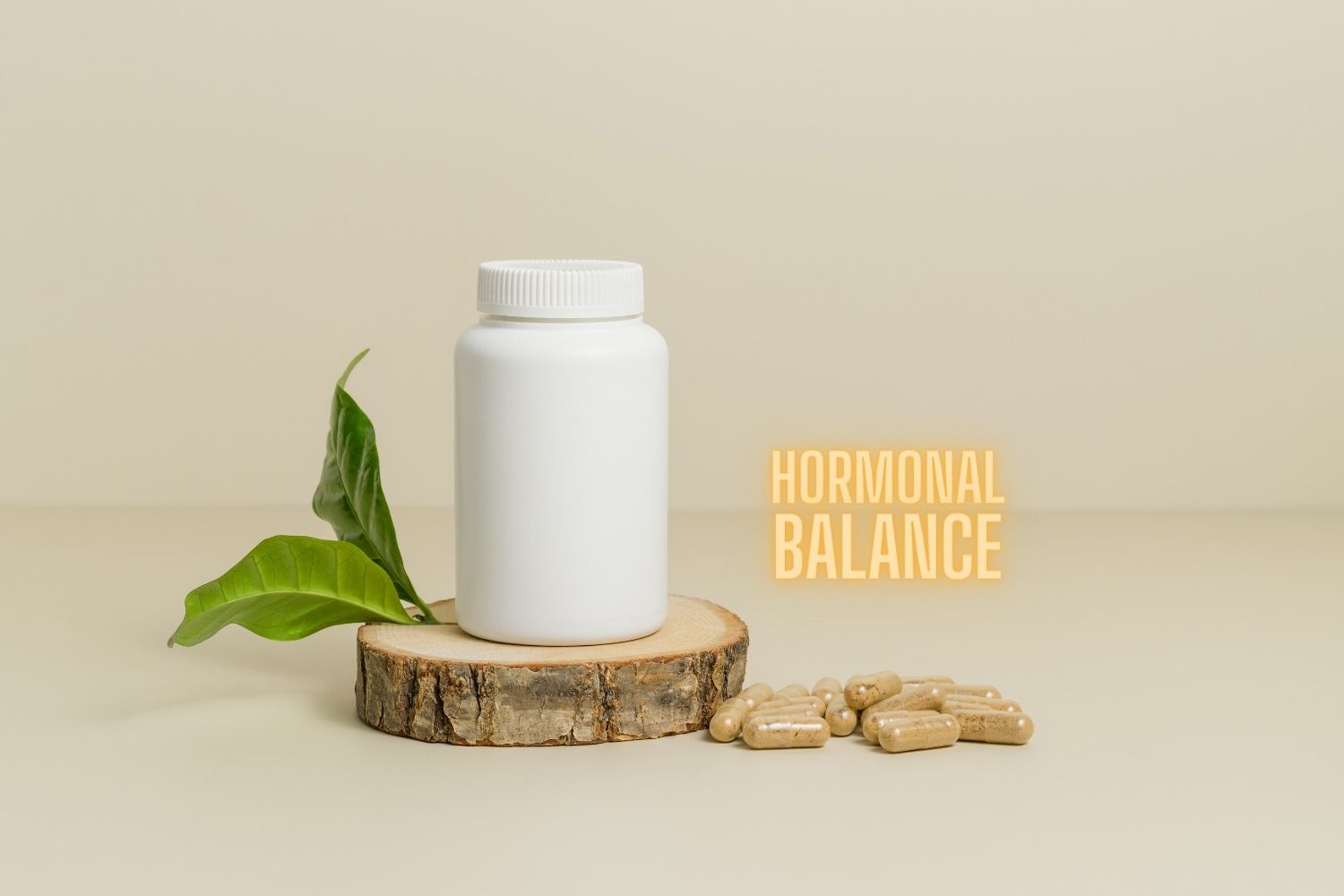If you're trying to conceive, you likely know that your partner's sperm is half the equation. Sperm is needed for fertilization. However, determining exactly when sperm should be waiting to meet the egg can be tricky. Many couples trying to have a baby are familiar with all the math required to determine when ovulationmight occur and when they should have intercourse. As a result, if ovulation was ill-timed, did their partner's sperm live long enough to fertilize the egg? It can be overwhelming!
If you've ever wondered how long sperm live, we've got your back. Our helpful guide will cover the sperm life cycle and other factors impacting sperm health. Hopefully, making your journey to the baby just a little less stressful.
How Long Does Sperm Live?
How long does sperm live in the body? According to NCBI, sperm live for around three to five days. However, the environment plays a huge role in their survival. They need moisture and warmth to survive. Sperm can live up to five days in the genital tract, which includes the vagina, uterus, and fallopian tubes. A woman's reproductive tract is very acidic, which can harm sperm as most healthy sperm are alkaline.
Fortunately, a woman's cervical mucus changes around the time of ovulation to better protect sperm and help them reach the egg. Sperm-friendly cervical mucus is generally only present around the time of a woman's fertile window.
Hormones in your body help to change the mucus, making it thin, clear, and stretchy instead of opaque. Commonly, this cervical mucus is referred to as having an egg-white consistency. The consistency of the CM helps to protect sperm. Still, it does not prevent it from swimming into the cervix and the fallopian tubes. The cervix also features small channels known as crypts that can hold onto sperm and increase its chances of being released into the uterus and fallopian tubes instead of expelled from the body.
Initially, the semen or ejaculate will help the sperm once it is inside a woman's vagina. Semen is thicker, and its gel-like consistency is sperm's first layer of protection inside the acidic female reproductive tract. A buffer, if you will. Then, over thirty minutes, the semen will become more watery in a process called liquefaction. The sperm will be free to enter the cervix and swim up to meet the egg, should one be coming down the fallopian tube. During this period, sperm-friendly cervical mucus can increase their chances of survival.
But what if an egg is not there? How long can sperm survive in the female reproductive tract? Strong sperm aided by cervical mucus can live up to five days in the genital tract. There, they will wait to meet an egg and fertilize it. Intercourse must be timed right because once an egg is released, it only lasts about twelve to twenty-four hours. If the sperm reach the fallopian tubes too early and cannot survive long enough, they will die before the egg arrives. Sperm reaching the genital tract too late will miss the egg entirely.
Don’t be dismayed though, if semen (and sperm) leak or fall out after intercourse. This inevitably happens when a woman changes positions, like standing up or doing other physical activity. In most cases, some sperm remains in the vagina, and some often make it through the cervix and into the fallopian tubes. Meaning pregnancy is still possible. Nevertheless, we won’t fault you if you choose to lay on your back with your legs up the wall. It can’t hurt!

How Long Does Sperm Live Outside the Body?
Outside the genital tract, sperm can only live for about fifteen to thirty minutes. This is because once the semen is dry, sperm can no longer survive. How long do sperm live in warm water? It is a myth that sperm can survive longer in a bath or hot tub, as the water quickly disperses the semen surrounding the sperm, which acts as a protective layer.
Furthermore, chemicals like those found in soap will kill sperm. Sperm truly can't swim that far; they need to be helped along by the female genital tract. Making it unlikely (but not impossible) that sperm ejaculated into a bathtub or hot tub could result in pregnancy. Also, sperm are not immune to heat. Temperatures that exceed the temperature of the human body kill sperm more quickly.
Speaking of semen, this liquid is essential to the sperm's survival and part of the sperm's lifecycle.
The Sperm Life Cycle
Millions of sperm are produced by a man's testicles each day. This process, known as spermatogenesis, takes around three days. Once sperm are mature, the testicle's storage, called the cauda epididymis, holds them where they continue to develop for about five weeks. Here, they can survive for a few weeks before being reabsorbed. In all, it takes around two and a half months for sperm to fully mature.
During intercourse, 200-400 million combine with seminal fluid from the seminal vesicles and a liquid produced by the prostate. This mixture is called semen and is what is ejaculated into the woman's reproductive tract.
Because a man's body is constantly producing new sperm to replace the old (or ejaculated), a man will likely never run out of semen or sperm. Even after multiple ejaculations within a short period, sperm are still present in semen. However, sperm quantity and quality can decrease as a man ages or due to other factors.
Low Sperm Count or Short-Lived Sperm?
If you're having trouble conceiving, it's unlikely that your sperm are just not surviving long enough. Instead, you may want to consider other factors like low sperm count, poor sperm motility, and decreased sperm health.
Talking to your doctor about sperm parameters and possibly a semen analysis can help give you a better understanding of your sperm health and your fertility options. In addition, you can make small changes to improve the quality and quantity of your sperm. Such as:
Provide a conducive environment for sperm by keeping the testicles cool. Loose underwear and regular breaks from hot environments may help.
Reduce alcohol consumption, as regular drinking can worsen semen quality.
Quit smoking; smoking cigarettes is linked to lower semen volume and sperm count.
Lower stress. Stress is believed to be linked to lower semen parameters.
Eat a well-rounded diet. Eating a balanced diet can help provide your body with the necessary nutrients and maintain a healthy weight for optimal sperm health.
Consider a supplement. Sperm-specific supplements, like Osh Wellness's Fertility for Him, are crafted with sperm-nourishing ingredients like CoQ10 that can aid in sperm motility, morphology, and count.
Related Product
Ayurvedic Fertility Support for Him
Fertility support developed by experts. This supplement contains a blend of Ayurvedic herbs and vitamins, including Maca Root, Shatavari, and Ashwagandha.







